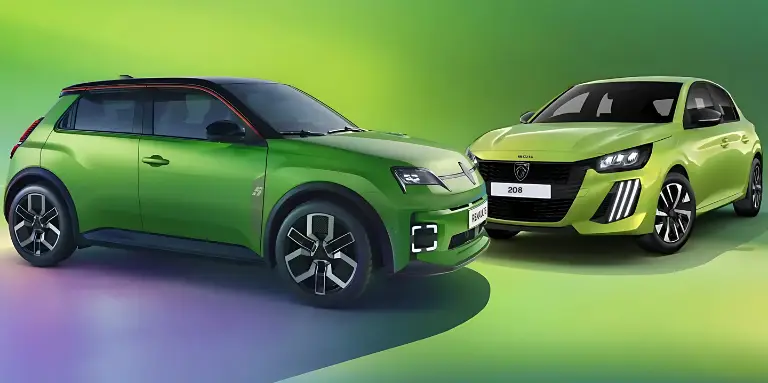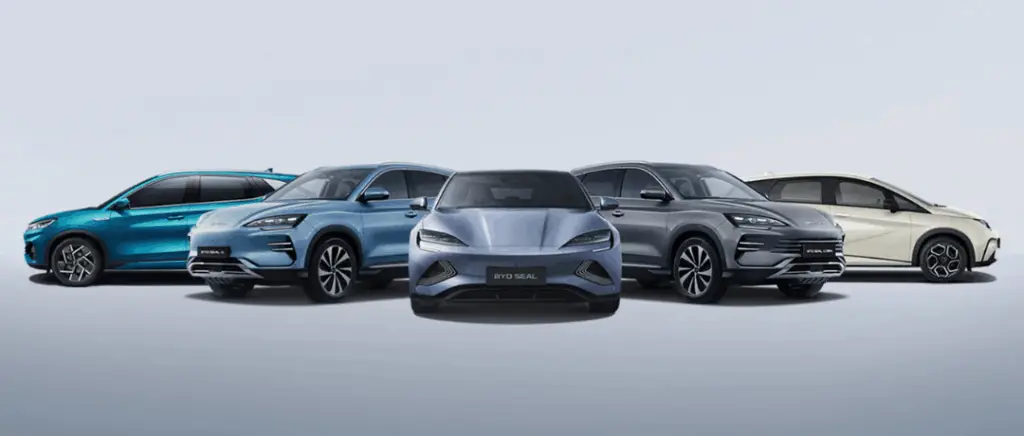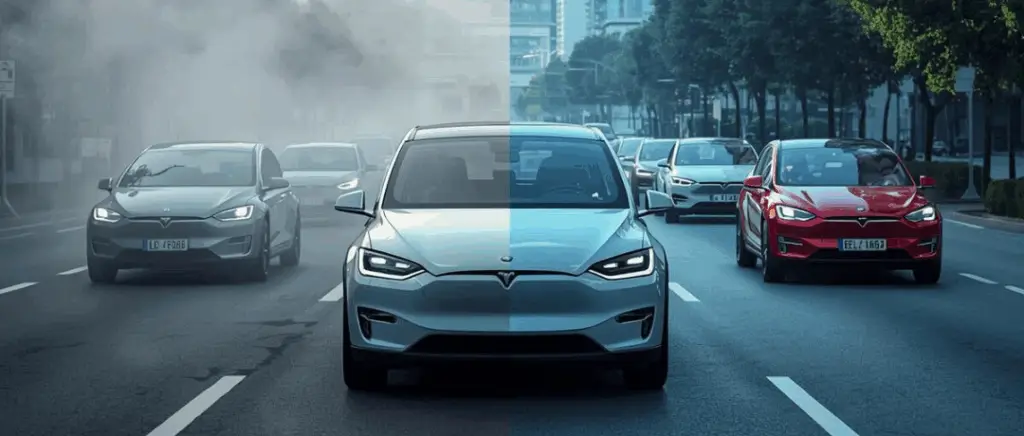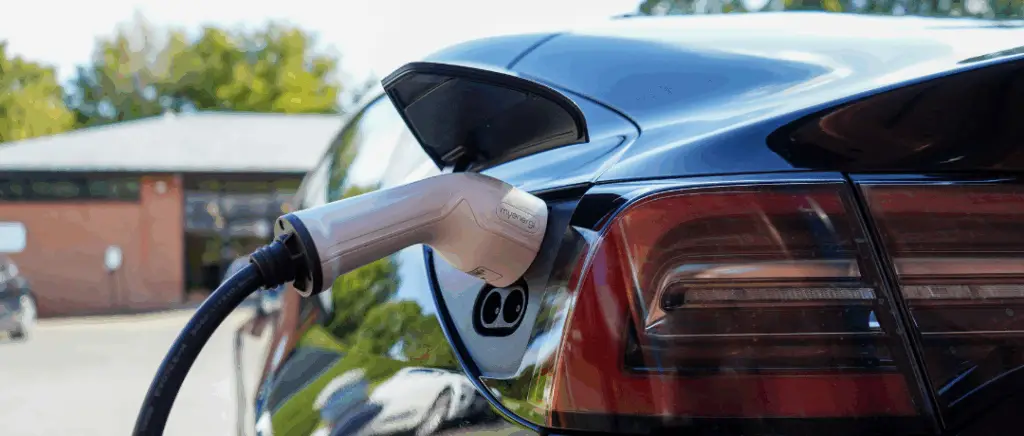
VS
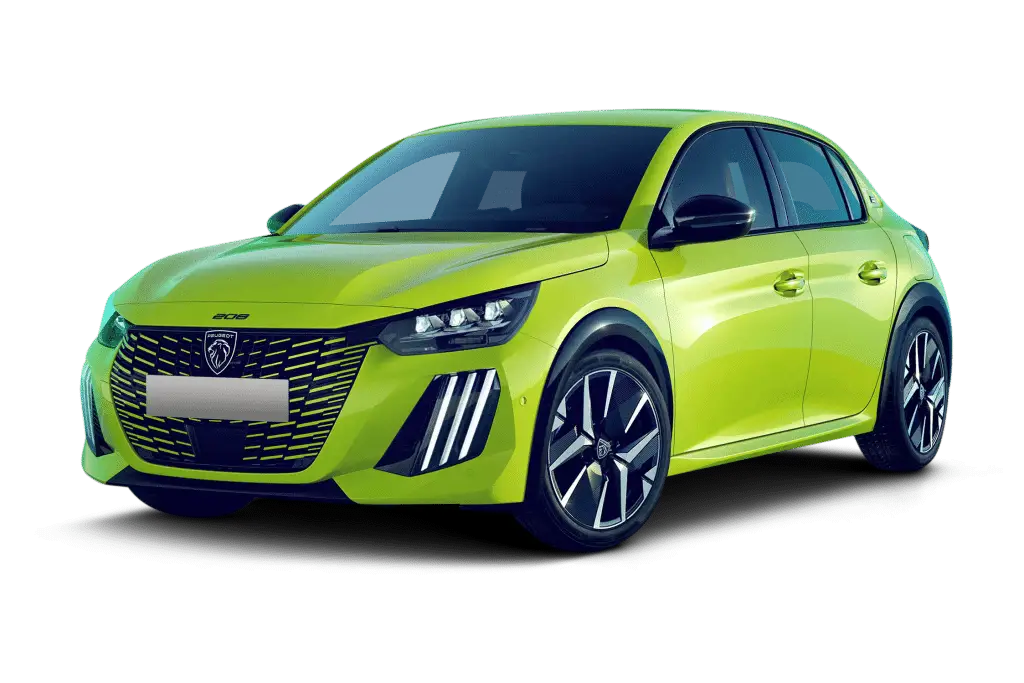
Compare the Renault 5 electric vs Peugeot 208 in our electric car comparison tool
Duel of the electric city cars: Renault 5 electric vs Peugeot e-208
The market for electric city cars is enjoying impressive growth, with models such as the Peugeot e-208 and the Renault 5 electric car vying for a place in the hearts of consumers. Peugeot's flagship model, the e-208, is one of the most popular electric city cars, with a dynamic design and advanced technology.
The Renault 5 electric, meanwhile, represents a return to basics for the Renault marque, reinterpreting a 1970s classic as a car of the future, with retro lines and a modern approach to mobility. Both vehicles are serious contenders, but each offers features that may influence consumers' choice according to their priorities.
The Renault 5 electric vs Peugeot e-208: which offers more power?
In terms of power, the Peugeot e-208 dominates slightly with its 136 hp (100 kW) electric motor, which enables it to be responsive and dynamic on the road. This power makes for a pleasant drive in town and on the motorway, with a good balance between performance and energy consumption. The Renault 5 electric, although a model more focused on practicality and retro design, is equipped with a more modest engine, with around 125 bhp (92 kW). This engine, while sufficient for city driving, may seem a little less powerful for drivers looking for more pronounced acceleration or a sportier feel.
In short, the Peugeot e-208 offers slightly more power, ideal for drivers looking for more dynamism at the wheel.
Renault 5 vs Peugeot e-208: which model has the best performance? autonomy and a shorter recharge time?
In terms of range, the Renault 5 electric, although equipped with a battery of similar size, with around 45 kWh, has an estimated range of 300-350 kilometres, which is slightly less than that of the Peugeot e-208, but still sufficient for city and suburban use.
On the other hand, the Peugeot e-208 offers impressive performance thanks to its 50 kWh battery, enabling it to cover between 340 and 400 kilometres on a single charge, depending on driving conditions and the version chosen. This makes it ideal for everyday journeys as well as longer jaunts without fear of running out of range.
In terms of recharging time, the two models are fairly competitive. The Peugeot e-208 can be recharged to 80 % in around 30 minutes with a fast terminal of 100 kW, while the Renault 5 electric offers similar times, with an 80 % charge time of around 35 minutes at a fast charging point. This means that the difference in recharge time is minimal, with both cars well suited to fast recharging on long journeys. However, the Peugeot e-208's slight advantage in range gives it a slight edge in this respect.
In conclusion, the Peugeot e-208 outperforms the Renault 5 electric in terms of range, but the two vehicles are fairly similar in terms of power and recharging time, offering practical and efficient solutions for city dwellers and regular drivers.
Prices and value for money: Renault 5 electric vs Peugeot e-208
Renault 5 or Peugeot e-208: which model is better value?
When it comes to choosing an electric city car, value for money is often one of the most important criteria. The Peugeot e-208, positioned as a premium model in the electric city car segment, has a slightly higher starting price, often around 37,000 to 40,000 euros before eco-bonus, depending on the trim level and options chosen. It stands out for its top-of-the-range equipment, meticulous finish and advanced on-board technologies, such as a large touchscreen and cutting-edge driving aids. In contrast, the Renault 5 electric is more affordable, with an expected entry price of around 25,000 to 30,000 eurosThis would make it an attractive alternative for consumers looking for a more affordable model.
The price difference is reflected in its positioning: the Peugeot e-208 targets customers looking for sophistication and performance, while the Renault 5 electric car offers unbeatable value for money, combining satisfactory range with nostalgic styling and functional equipment. Those who prefer to keep a tight rein on their budget without sacrificing the essentials of modern functionality may find the Renault 5 a better compromise.
In conclusion, the Renault 5 electric represents an offer more economicalThis is the ideal car for city drivers looking for the essentials at a competitive price. The Peugeot e-208, on the other hand, justifies its higher cost by its comprehensive range of features, aimed at customers looking to combine top-of-the-range performance, autonomy and comfort. The choice of model will therefore depend on your priorities: price or premium services.
Design and comfort: Renault 5 electric vs Peugeot e-208
The Renault 5 or the Peugeot e-208: which design appeals most?
La Peugeot e-208 and the Renault 5 electric adopt radically different design and comfort philosophies, each with something to appeal to individual preferences.
La Peugeot e-208 is distinguished by its modern, dynamic look. With its flowing lines, fang-shaped LED lights and distinctive radiator grille on electric versions, it has a resolutely contemporary style. Inside, its i-Cockpit offers a top-of-the-range experience, with a 3D digital dashboard, a small ergonomic steering wheel and quality materials. Comfort is optimised thanks to well-crafted seats and an immersive technological ambience, perfect for drivers seeking sophistication and innovation.
However, the Renault 5 electric is a retro design that plays on nostalgia, with square lines and details inspired by the original 70s model. This nod to the past, combined with modern elements such as futuristic lighting, is both charming and original. Inside, Renault opts for a more minimalist and functional style, with streamlined controls and a practical use of space. Although less luxurious than the interior of the e-208, the Renault 5's cabin remains welcoming and efficient for everyday use.
In terms of comfort, the Peugeot e-208 has a slight edge thanks to its attention to detail and premium ambience. The Renault 5 is simpler, with a focus on accessibility and practicality, ideal for city journeys.
Renault 5 vs Peugeot e-208: summary of key characteristics
| Criteria | Peugeot e-208 | Renault 5 electric |
|---|---|---|
| Performance | 136 bhp (100 kW): a dynamic, responsive engine. | 125 bhp (92 kW): sufficient for city driving, but less powerful. |
| Autonomy | 340 to 400 km (50 kWh battery). | 300 to 350 km (45 kWh battery). |
| Battery | 50 kWh, advanced technology. | 45 kWh, compact, optimised battery. |
| Consumption | Low power consumption thanks to optimised energy efficiency. | Comparable, with a practical orientation for everyday use. |
| Recharge time | 30 minutes for 80 % (100 kW fast terminal). | 35 minutes for 80 % (100 kW fast terminal). |
| Rates | 37,000 to €40,000 (excluding environmental bonus). | 25,000 to €30,000 (excluding environmental bonus). |
| Design | Modern and sporty: flowing lines, fang-shaped lights, technological i-Cockpit. | Retro-modern: angular lines, nostalgic details, unique charm. |
| Comfort | Ergonomic seating, top-of-the-range finish, immersive atmosphere. | Minimalist interior, practicality-oriented, functional space. |
| Target audience | Drivers looking for sophistication, performance and autonomy. | Consumers looking for an affordable vehicle with a nostalgic look. |
Conclusion
The duel between the Renault 5 electric and the Peugeot e-208 pits a premium city car against a more affordable option. The Peugeot e-208 stands out for its 136 bhp, 340-400 km range and modern design, ideal for those looking for top-of-the-range performance. The Renault 5 electric, with its retro charm, 300-350 km range and more competitive price, will appeal to those looking for practicality and economy.
Choose according to your priorities: performance and sophistication (e-208) or accessibility and originality (R5).
Interested in an electric vehicle? Contact Beev, our experts will help you with your project!
Use the TCO simulator to calculate the total cost of ownership of your car and compare it with its internal combustion equivalent.
